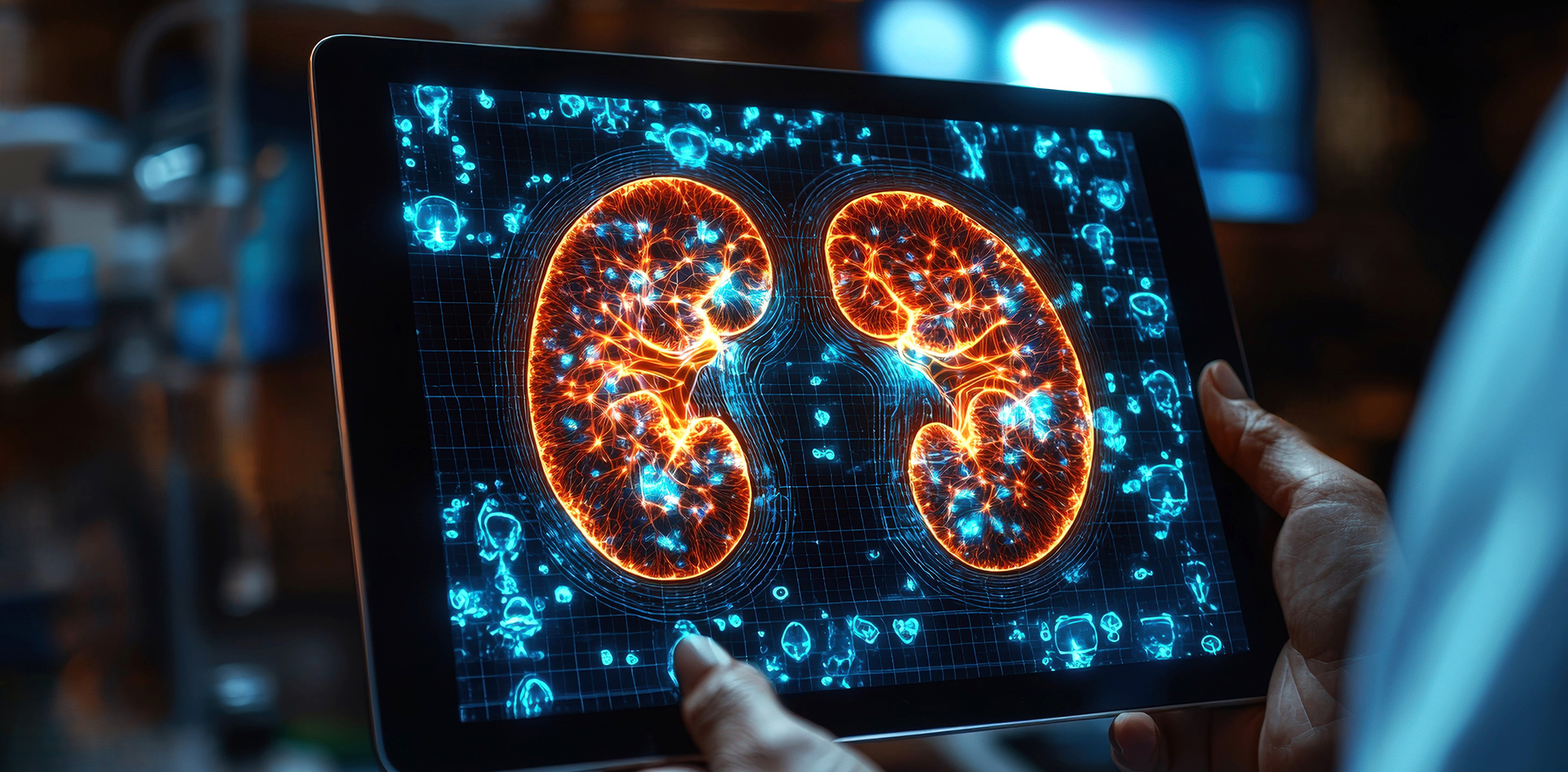

Spatial-omic profiling of kidney disease biopsy tissues linked with biofluid biomarker discovery
Webinar Overview
A normal human kidney has been spatially mapped using multiple N-glycan imaging mass spectrometry approaches, revealing one of the most unique organ specific N-glycomes in the human body. Having a defined renal glycome allows direct comparison of healthy kidney tissues to diseased kidney tissues.
It is hypothesized that glycosylation changes precede disease and can serve as indicators of kidney damage. Here, patient-matched urine, serum, in normal kidney versus lupus nephritis is evaluated for biomarker targets that result from direct assessment of the glycome.
Key Learning Objectives:
- The importance of glycosylation in disease-based research
- Methods for implementing spatial omics into existing workflows
Who should join:
- Clinical researchers looking to enhance workflows with spatial awareness
- Investigators interested in gaining actionable information from multiomics
Speakers
Richard Drake, Ph.D.
Professor, Department of Pharmacology and Immunology, Medical University of South Carolina, Charleston, SC
Richard Drake is a Professor in the Department of Pharmacology and Immunology at the Medical University of South Carolina and SmartState Endowed Chair in Proteomics. His lab developed the workflows for glycan-targeted mass spectrometry imaging of clinical tissues and biofluids for biomarker discovery and development of new diagnostics. Current efforts are in the large scale application of N-glycan MS imaging methods to identify glycan biomarker panels associated with tumor, stroma and immune regions of cancer and auto-immune disease tissues. Further, these glycan maps are being used to identify the localized glycoprotein carriers using new sialic acid targeted affinity reagents. The glycan imaging workflows are highly synergistic with emerging multi-modality spatial-omic analysis strategies at the macro and single cell levels.
Aaron Angerstein, MD-Ph.D. Researcher
Department of Pharmacology and Immunology, Medical University of South Carolina, Charleston, SC, USA
Aaron Angerstein is an MD-Ph.D. candidate at MUSC, currently completing doctoral research in mass spectrometry-based biomarker discovery for autoimmune diseases in the Drake laboratory. His dissertation work integrates MALDI MS imaging and glycomics to support precision diagnostics in lupus nephritis and other kidney diseases. Future goals focus on advancing academic medicine at the intersection of rheumatology and molecular diagnostics.
For Research Use Only. Not for use in clinical diagnostic procedures.